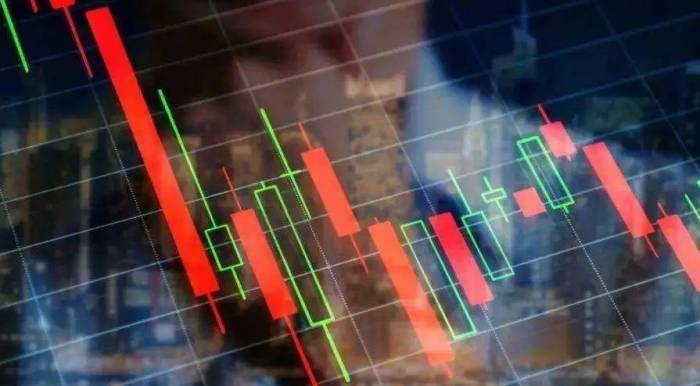U.S. Stocks Soar, Dow Surpasses 40,000, Apple Hits New High
The U.S. stock market witnessed a robust rally as all three major indices surged in unison during Monday’s trading session. The Nasdaq Composite Index edged up by 0.40%, reflecting the underlying optimism amidst unfolding political drama, particularly surrounding former President Donald Trump. The Dow Jones Industrial Average gained 210.82 points, closing the day at 40,211.72 points, while the S&P 500 index inched higher by 0.28% to settle at 5,631.22 points. Notably, the Russell 2000 index, which tracks small-cap stocks, soared by 1.8%, reaching its highest level since 2022.
The market’s buoyancy can be largely attributed to a combination of factors, including expectations of an interest rate cut by the Federal Reserve and the implications surrounding Trump’s recent political maneuvers, which are believed to have significant ramifications for the economy and market sentiment. On that day, Fed Chair Jerome Powell attended a public event where he expressed heightened confidence in the potential for inflation to return to the central bank's target of 2%. Despite his optimistic outlook based on the latest economic indicators, Powell was careful not to hint at any imminent plans for rate cuts or adjustments.
Advertisement
Market sentiment remains optimistic regarding the possibility of interest rate cuts by the Federal Reserve. According to data from federal funds futures trading, traders are anticipating a 25-basis point rate cut in September, with two additional cuts expected in 2024. Bill Merz, the Head of Capital Markets Research at U.S. Bank Wealth Management, was quoted as saying, “We are nearing the Fed’s goals, which is a critical aspect of market psychology right now.” This anticipation has proved a driving force behind the recent uptick in stock prices.
In more political developments, during the Republican National Convention held in Milwaukee, Wisconsin, party officials formally nominated Donald Trump as the candidate for the 2024 presidential election. Following this announcement, Trump unveiled GOP Senator J.D. Vance of Ohio as his running mate, a move that is expected to galvanize Trump's base as he prepares for the upcoming election.
Longer-term U.S. Treasury yields exhibited mixed movements, reflecting the market’s sensitivity toward interest rate expectations. While the 2-year Treasury note slipped by 0.5 basis points to 4.45%, the benchmark 10-year note rose by 4.5 basis points, settling at 4.23%. Investors remain concerned regarding the inflationary pressures that could arise from Trump's potential presidency which might disrupt fiscal prudence. Bob Savage, the Head of Market Strategy at BNY Mellon, commented on the prevailing market narrative driven by the "Trump trade," noting that many investors perceive the weekend developments as amplifying the chances of Trump's electoral victory.
In terms of economic indicators, manufacturing activity in the New York region contracted for the eighth consecutive month, as reported by the New York Federal Reserve. The Empire State Manufacturing Survey showed a 0.6-point drop in the index, landing at -6.6. Interestingly, while the new orders index did see a slight increase, shipment volumes improved only modestly, a sign that the labor market continues to exhibit signs of weakness.
As the earnings season unfolds, investors are keenly observing whether tech giants can justify their lofty valuations amidst fluctuating market conditions. Ben McMillan, Chief Investment Officer at IDX Advisors, remarked, “In the short term, it appears that a rotation from large-cap tech to smaller firms will continue, but for this expansion to sustain itself, we need to witness solid earnings reports.”
On the corporate front, Goldman Sachs experienced a notable rise of 2.6%. The bank exceeded analysts' expectations with a doubling of its second-quarter profits, largely driven by robust debt underwriting and fixed-income trading activities. This also spurred a greater than 1% increase in the financial sector of the S&P 500.
Apple Inc. marked a significant milestone, as its stock climbed 1.7% to reach a record high. Analysts at Morgan Stanley designated Apple as a top pick, predicting that the launch of comprehensive artificial intelligence platforms would drive a historic wave of consumer upgrades towards smarter devices, including smartphones, tablets, and computers.

However, not all tech stocks participated in the rally; mixed performances were noted among other market leaders. Alphabet (Google) rose by 0.8%, while Microsoft gained a marginal 0.1%. Conversely, Meta Platforms faced a decline of 0.5%, Nvidia dipped by 0.6%, and Amazon fell by 0.9%.
In contrast to the tech sector's jumbled performance, Macy’s experienced a sharp decline of 11.7%. The retail giant announced the termination of its acquisition talks with Arkhouse Management and Brigade Capital, sending shockwaves through its stock price. The uncertainties surrounding the retail landscape have been magnified by ongoing economic volatility.
Interestingly, shares of Trump Media soared by 31.4%, buoyed by an optimistic electoral outlook tied to Trump's candidacy, indicating that investor sentiment is heavily influenced by political developments.
In the renewable energy sector, SolarEdge Technologies fell significantly, declining by more than 15%. Investors are grappling with concerns that Trump's potential return to the presidency could diminish federal support for renewable energy subsidies.
International oil prices saw a slight dip as market participants weighed summer energy demand forecasts against the backdrop of geopolitical tensions. Crude prices for West Texas Intermediate (WTI) declined by 0.36% to $81.91 per barrel, while Brent crude fell 0.21% to $84.85 per barrel.
Concurrently, international gold prices witnessed moderate gains as expectations of interest rate cuts continued to bolster purchasing activity. Gold futures for July delivery on the COMEX rose by 0.37% to $2,422.90 per ounce.